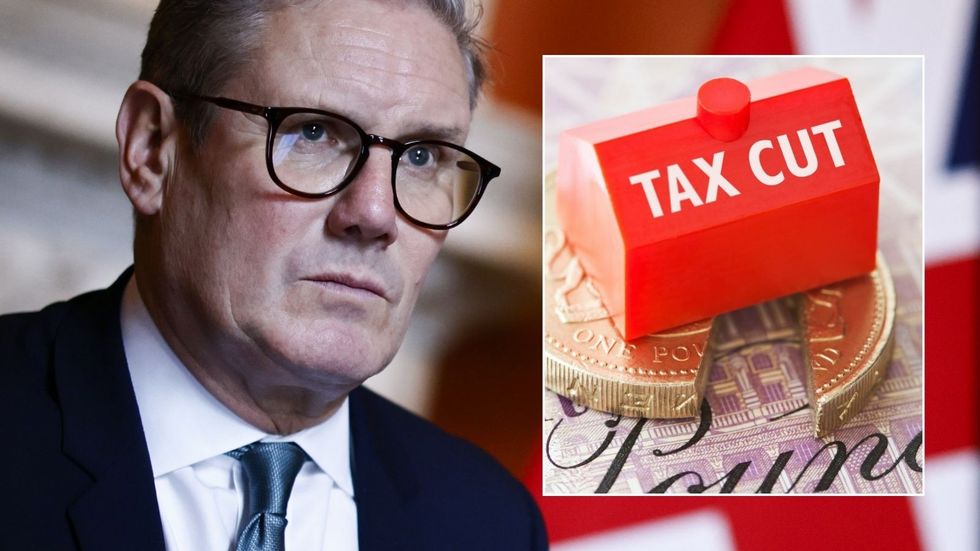Fears grow over National Insurance as Starmer REFUSES to rule out tax hikes

The Prime Minister sidestepped the question over cutting National Insurance contributions for employers
Don't Miss
Most Read
Prime Minister Keir Starmer has refused to rule out raising National Insurance for millions of Britons ahead of Chancellor Rachel Reeves' Autumn Budget on October 30.
The new Labour Government was under renewed scrutiny during PMQs this afternoon over potential tax rises being introduced in the near future.
Former Prime Minister Rishi Sunak asked his successor to elaborate on his administration's fiscal agenda.
"Can he confirm that when he promised to not raise National Insurance, income tax or VAT, that commitment applies to both employer and employee NI contributions?", he said.
In response, Starmer answered: "As he well knows, I'm not going to get drawn on decisions.We made an absolute commitment to not raising taxes on working people.
"He was the expert's expert on raising taxes and what did we get from it? We got a broken economy, broken public services and a £22billion black hole."
Do you have a money story you’d like to share? Get in touch by emailing money@gbnews.uk.

Starmer hit back at his predecessor over potential tax hikes
| GETTY/PAThe rate paid on National Insurance for 27 million workers dropped from 12 per cent to 10 per cent in January of this year.
On April 6, the levy's rate for employees fell again to eight per cent as part of former Chancellor Jeremy Hunt's tax cuts.
According to the last Conservative Government, combined these tax cuts saved the average working person £900 annually, if they were earning around £35,000.
Britons who are self-employed saw their class 4 NI contributions for earnings between £12,570 and £50,270 drop from nine percent to six per cent over the period..
The Tories came under fire for implementing these tax cuts due to the rising cost on the public purse.
How much employers contribute in National Insurance is dependent on the NI category of their workers.
For the majority of employees during the 2023/24 tax yea, businesses need to pay a 13.8 per cent contribution on any worker earnings surpassing the second threshold.
As it stands, this threshold is sitting at £175 per week or £758 a month.
LATEST DEVELOPMENTS:
 'Lesser-known ways to save on tax' as Kier Starmer hints at tax hikes in upcoming Budget | 'Lesser-known ways to save on tax' as Kier Starmer hints at tax hikes in upcoming Budget
'Lesser-known ways to save on tax' as Kier Starmer hints at tax hikes in upcoming Budget | 'Lesser-known ways to save on tax' as Kier Starmer hints at tax hikes in upcoming BudgetRobert Salter, a director at Blick Rothenberg, noted that the Government will likely target middle-income households to plug the £22billion "black hole".
He said: “Without their expected tax income from non-doms, the Government will have to look elsewhere.
"Their only real option will be to increase taxes on middle income earners, despite their pre-election promises not to do this.
"Given that the Chancellor increased VAT on private school fees and introduced anti-forestalling legislation to prevent people avoiding that VAT increase, it is possible she will introduce her taxation changes immediately October 30 without giving taxpayers any time to prepare for them."










